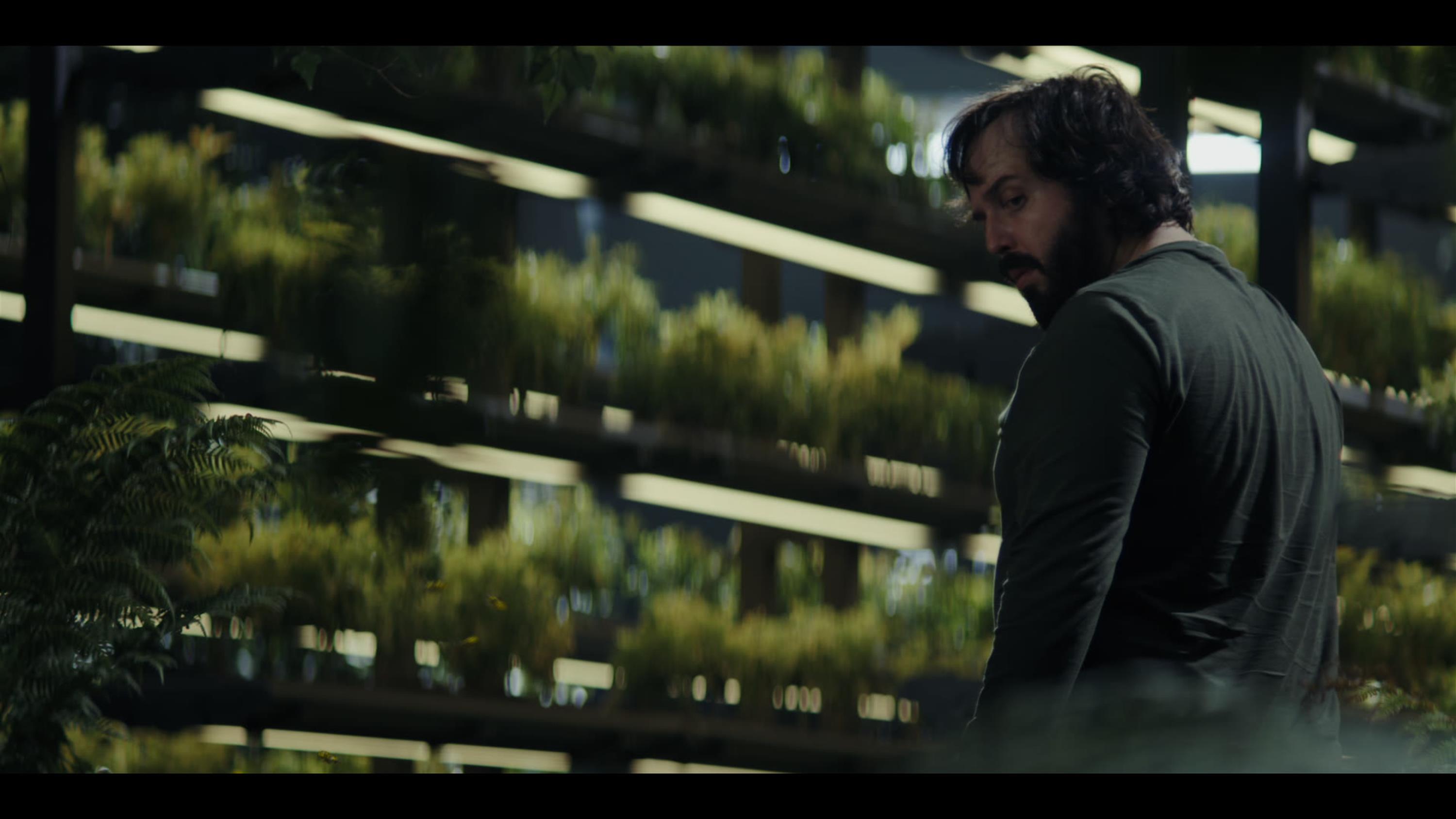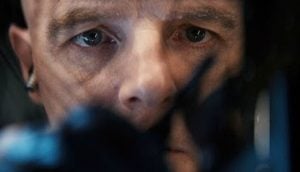
“What did you see?”
“All of it. Death. Rebirth. A thousand worlds.”
It’s a shame when the penultimate episode of a halfway decent season turns out to be the worst episode. “Icarus”, while exhibiting moments of interest and heartfelt drama, is too much of a train wreck though, to be fair, most of the negative aspects of the episode were birthed by some of the more peculiar choices for characters and their motivating actions.

After helplessly watching Tessia die, Rowan has become terribly unhinged. It’s evident in his speech, his mannerisms, his entire aura. Despite the necessity in Agatha and Roy’s actions to decontaminate the med lab, Rowan blames the pair and has murderous intent towards them. So it is that we’ve reached the beginning of Nightflyers and the chaos as the Terraform dome breaks apart and Agatha fights for her life against the ax-totting madman. It’s ironic that, while Rowan wishes to kill her, Agatha knows she must die. As the Nightflyer comes closer to the volcryn, her and Thale’s presence on the ship is too much; only one telepath will be able to survive as they narrow the gap between them and the alien presence. She makes the ultimate sacrifice to save Thale, the young man that, for all intent, has been a part of her family for years.

In Thale, “Icarus” has its sole standout presence. Sam Strike is brilliant throughout but it’s his first contact with the volcryn—one in which he marvels at the living mass that is the alien host—where he shines brightest. The overwhelming emotion he exudes after touching something so vast, so unfathomable is a saving grace that carries the anticipation for what will happen when the Nightflyer enters the volcryn mass. But his reaction to feeling Agatha’s death is every bit as powerful. As an L-1, Thale’s entire life has been spent as a pariah, a freak who has time and again, picked up on the horrible thoughts of those around him. Thoughts that are often tinged with their disgust of what he is. He may have been integrated into the crew but he knows it’s not because the people actually care for him, rather what he can do to take their boredom away or, in Karl’s case, a tool for the scientist’s obsessive journey to contact the volcryn.
On the Karl front, his character has become so unlikable, it’s hard to put into words. Only Rowan’s evil (albeit grief-stricken) actions and those of Augustine (so easily led by Cynthia’s wishes) keep him from the bottom of the terrible person list. His standing line that he’s doing this all for Earth, when compared with his entire composition of actions, rings hollow. Karl is doing everything for himself to the point that even his feelings for Agatha must be called into question.

One of the precepts Nightflyers takes on is the layered aspects of human beings. The show tries to perform a study of sorts into people as a whole— their loves, their memories, their pain, their motivations—but too often the direction taken is heavy-handed, and very poorly thought out. “Icarus” is the pinnacle of these mistakes, capturing so much of the negative aspects of the series into 45 minutes of mostly disappointing fare. Aside from the small nuggets like Sam Strike’s performance as Thale and Roy’s cybernetic reveal, the only saving grace for “Icarus” may be that
Into the Void
- After catching a glimpse of his eyes at the end of “Transmission”, the reveal that Roy was some sort of android did not come as a surprise. Now, his laments that Cynthia was constantly in his head makes sense. The question now becomes, was Roy ever really human or has he always been a creation built by Cynthia Eris?
- Though Agatha’s death makes sense in the narrative of “Icarus”, it is somewhat disappointing to see that those incredible five minutes that started the series was nothing more than a culmination of one man’s crazed grief and a woman’s sacrifice for her friend. Part of that can be attributed to my own expectations but the writers deserve some blame as well; not for the end result, rather the sloppy architecture of the series as a whole. Still, she along with the little-used Tessia were the only two people who came across as truly good. That doesn’t mean they were perfect but, compared to the secrets, lies, and selfishness exhibited by the others, they were the beacons of light on an otherwise dark journey.
- Continuing with Agatha, her force ghost powers were so far out of the blue. Again, the explanation made sense—it was a byproduct of being so close to the volcryn—but introducing something like this so late in the game is like a deus ex machina. True, the finale may make beautiful use of this as well as expand upon the volcryn’s effect but, if it doesn’t, I’d categorize it as just another misstep of taking a compelling idea but inserting it at the wrong time.
- As with a few other things, the Lommie-is-Cynthia swerve is a bit of too little-too late. The idea that someone could jack another’s mind is, as with the astral projection, a very interesting concept. But the inability to expand upon it seems more like wasted material.
![]()
